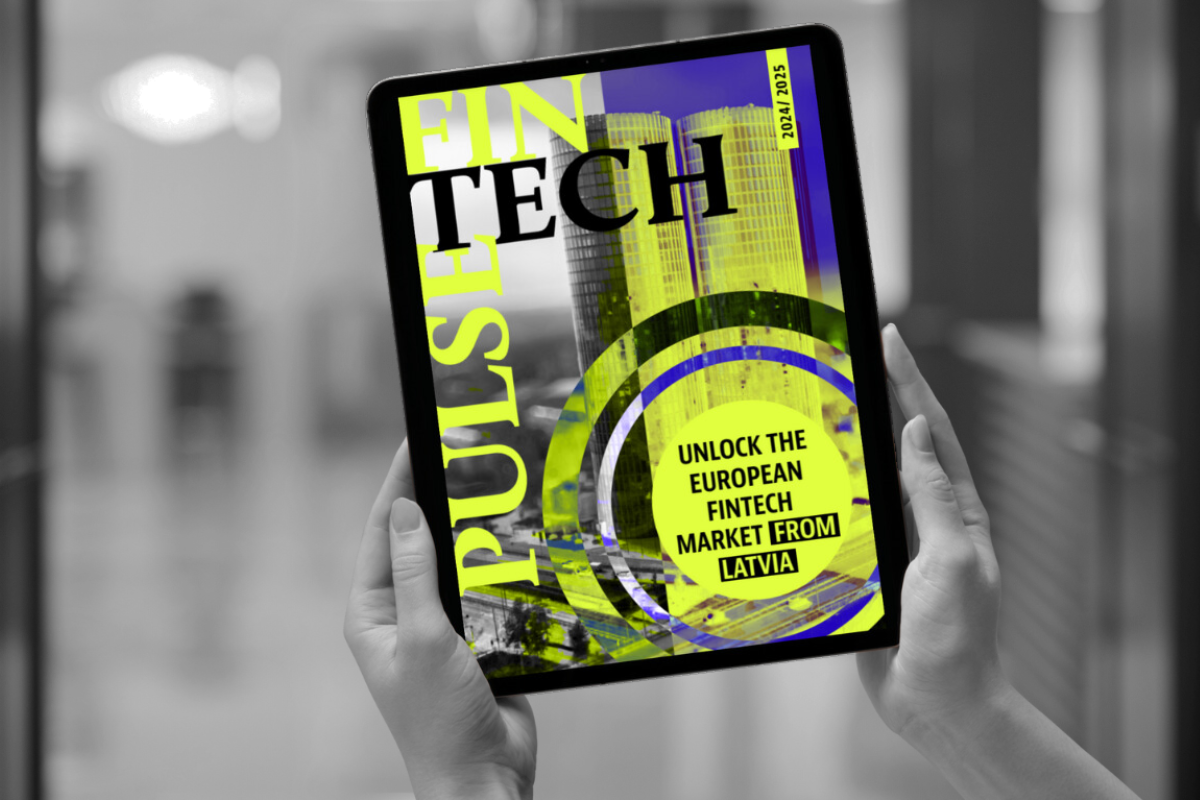Fintech
SEC Adopts Rules to Modernize Key Market Infrastructure Responsible for Collecting, Consolidating, and Disseminating Equity Market Data

Washington, D.C.–(Newsfile Corp. – December 9, 2020) – The Securities and Exchange Commission today adopted rules to modernize the infrastructure for the collection, consolidation, and dissemination of market data for exchange-listed national market system stocks (“NMS market data”). This infrastructure has not been significantly updated since its initial implementation in the late 1970s. The adopted rules update and significantly expand the content of NMS market data to better meet the diverse needs of investors in today’s equity markets. The adopted rules also update the method by which NMS market data is consolidated and disseminated, by fostering a competitive environment and providing for a new decentralized model that promises reduced latency and other new efficiencies.
“Today’s rules are part of our larger initiative and ongoing efforts to modernize our equity market regulatory structure to address significant changes in our trading markets and better fit the needs of investors—both retail and institutional—and other market participants, including issuers. In particular, these rules are designed to increase competition and transparency, which will improve data quality and data access for all market participants,” said Chairman, Jay Clayton.
“The content of national market system data for equities and the consolidation and dissemination of that data have lagged meaningfully behind the technologies and data content widely used for proprietary data products offered by exchanges. The rules adopted today address these issues and, for the first time, foster a competitive environment for processing and distributing NMS market data,” said Director, Brett Redfearn.
In 1975, one of Congress’s principal objectives for the national market system was to assure the availability of information with respect to quotations for, and transactions in, securities. The national securities exchanges and the Financial Industry Regulatory Authority (“FINRA” and collectively, the “SROs”) have acted jointly to collect, consolidate, and disseminate information for NMS stocks. For each NMS stock, the SROs were required to provide specified NMS market data to exclusive securities information processors (“SIPs”). The SIPs then consolidated that information and made it available to the public. The rules adopted today are designed to modernize and improve upon that historical infrastructure, by expanding the content of NMS market data and replacing the historical “exclusive SIP” model with a decentralized model of “competing consolidators.”
* * *
FACT SHEET
Market Data Infrastructure
Current Regulatory Framework
NMS market data is made widely available to investors through the national market system, a system set forth by Congress in Section 11A of the Securities Exchange Act of 1934 (“Exchange Act”) and facilitated by the Commission in Regulation NMS. The current national market system for NMS information was developed in the late 1970s. This system features a centralized consolidation model in which the SROs act jointly under the Equity Data Plans to provide specified NMS market data for each NMS stock to exclusive SIPs. The exclusive SIPs then consolidate that information and disseminate a national best bid and national best offer (“NBBO”) and last sale information. While the Commission has been monitoring the effectiveness of its NMS rules and has revised certain rules, the Commission has not significantly updated the rules that govern the content and dissemination of NMS market data since their initial implementation in the late 1970s, even though technologies as well as business and trading practices have changed dramatically since then.
Market Developments
Significant technological changes have occurred since the 1970s and the enactment of Section 11A in the 1975 amendments to the Exchange Act. In particular, the combination of technological advances and order routing and trading strategies have greatly increased the speed and automation of markets, making trading more market data dependent, in terms of content, access, and processing speed. In response, exchanges have developed enhanced proprietary data and connectivity products. The content and latency differentials between SIP data and the proprietary market data products disseminated directly by the exchanges have become increasingly important.
Adopted Rules
The content of NMS market data and the model for collecting, consolidating, and disseminating NMS market data have not kept pace with the needs of market participants. The rules adopted today seek to address this concern in two fundamental ways: (1) the rules update and expand the content of NMS market data; and (2) the rules establish a decentralized consolidation model in which competing consolidators, rather than the exclusive SIPs, will be responsible for collecting, consolidating, and disseminating consolidated market data to the public.
Content of NMS Market Data
As illustrated in the examples provided in the chart below, the rules adopted today update and expand the content of NMS market data to include: (1) information about orders in share amounts smaller than the current round lot size (e.g., 100 shares); (2) information about certain orders that are outside of an exchange’s best bid and best offer (i.e., certain depth of book data); and (3) information about orders that are participating in opening, closing, and other auctions.
|
Examples of Content of Previous vs. New NMS Market Data |
||
|
Previous |
New |
|
|
Last sale data/transaction reports |
The price, size and exchange of the last sale of the NMS stock, including odd-lot transactions. |
No change.
|
|
Best bid and best offer (“BBO”) |
BBOs for each SRO in round lot sizes (e.g., 100 shares).
|
BBOs for each SRO in revised round lot sizes based on the new “round lot” definition:
|
|
National best bid and national best offer |
NBBO is based on the round lot size quotations. |
NBBO will be based on the new round lot size quotations. |
|
Odd-lot quotations |
Not included. |
Odd-lot quotations at a price greater than or equal to the national best bid (NBB) and less than or equal to the national best offer (NBO), aggregated at each price level at each SRO. |
|
Protected quotations |
Protected quotations are in round lots.
|
Protected quotations will be in new round lots. |
|
Depth of book data
|
Not included.
|
New “depth of book data” will include quotation sizes at each national securities exchange and on a facility of a national securities association at each of the next five prices at which there is a bid that is lower than the NBB and offer that is higher than the NBO. |
|
Auction information
|
A limited range of auction information was provided by the Equity Data Plans, such as reopening auction information following Limit-Up Limit-Down (“LULD”) pauses and certain NYSE auction information. |
New “auction information” will include any information specified by SRO rules or effective NMS Plans that is generated by an SRO leading up to and during an auction—including opening, reopening, and closing auctions—and publicly disseminated during the time periods and at the time intervals provided in such rules and plans. |
|
SRO-specific program data
|
Information regarding SRO-specific programs, such as retail liquidity programs. |
All current SRO-specific program data plus any additional data elements defined as such pursuant to the effective national market system plan(s) required under Rule 603(b). |
|
Over-the -counter bulletin board (“OTCBB”) and concurrent use data |
OTCBB quotation and transaction data and certain “concurrent use” data (i.e., corporate bond and index data) is offered in connection with current NMS market data. |
This information will not be included in NMS market data under the rules adopted today. |
|
Regulatory data
|
Includes information regarding short sale circuit breakers, trading pauses, regulatory halts and official opening and closing prices of the primary listing exchanges. |
All current regulatory data plus a new indicator for applicable round lot sizes and any additional regulatory data elements defined as such pursuant to the effective national market system plan(s) required under Rule 603(b). |
|
Administrative data
|
Includes messages specifying identifiers for market centers and issue symbols and messages regarding the beginning and end of trading sessions. |
All current administrative data plus any additional data elements defined as such pursuant to the effective national market system plan(s) required under Rule 603(b). |
Decentralized Consolidation Model
The rules adopted today also introduce a decentralized consolidation model under which competing consolidators, rather than the existing exclusive SIPs, will collect, consolidate, and disseminate certain NMS information. To support this decentralized model, the rules require each SRO to make available the data that is necessary to generate consolidated market data to two new categories of entities: (1) competing consolidators, which will be responsible for collecting, consolidating, and disseminating consolidated market data products to the public; and (2) self-aggregators, which will be brokers, dealers, SROs, and investment advisers registered with the Commission that elect to collect and consolidate market data solely for their internal use.
Competing consolidators will be required to register with the Commission under new Rule 614 of Regulation NMS. All competing consolidators will be subject to certain standards with respect to the promptness, accuracy, reliability, and fairness of their operations, and competing consolidators meeting a market share threshold that are “SCI competing consolidators” will be subject to Regulation SCI. Self-aggregators will not be required to register with the Commission in a separate capacity.
What’s Next?
The adopted rules will be effective 60 days after publication in the Federal Register but in order to facilitate an orderly transition, the Commission has developed a phased transition plan that will begin in 2021.
Fintech
Fintech Pulse: A Daily Dive into Industry Innovations and Developments

The financial technology sector continues to evolve at a rapid pace, offering innovations that disrupt traditional paradigms. Today’s briefing underscores fintech’s diverse growth avenues: from substantial venture capital plays and strategic partnerships to groundbreaking implementations in lending. Here’s a closer look at recent developments shaping the landscape.
Synapse’s Comeback and Andreessen Horowitz’s Strategic Bet
Source: Axios
Synapse, a financial infrastructure company previously embattled by controversy, is staging a remarkable comeback, backed by none other than venture capital heavyweight Andreessen Horowitz (a16z). With this new infusion of funds, Synapse aims to consolidate its position as a premier platform for building financial services tools.
This resurgence demonstrates the resilience of the fintech ecosystem, where innovation often prevails over turbulence. Synapse’s renewed vigor also signals that top-tier investors remain bullish on infrastructural solutions pivotal to the future of digital finance. Andreessen Horowitz’s participation not only validates Synapse’s model but also underscores the VC giant’s enduring interest in fintech infrastructure, even amid global economic uncertainties.
Analysis:
This partnership exemplifies the dynamism within fintech, highlighting the interplay of innovation, capital, and resilience. It also raises questions about the broader implications of giving second chances to firms with turbulent histories. While Synapse’s evolution could inspire others, it also places a spotlight on governance and accountability in high-growth sectors.
Israel’s Fintech Scene Gets a Boost with Investment in Finova Capital
Source: Calcalistech
Israeli fintech startup Finova Capital has raised an impressive $20 million in a funding round led by prominent institutional investors. This marks a significant milestone for the company as it seeks to expand its suite of financial solutions aimed at underserved markets.
Israel’s fintech ecosystem has long been recognized as a hub of innovation, and this latest investment only reinforces its global standing. Finova Capital’s focus on empowering smaller businesses and fostering financial inclusivity aligns with emerging trends where tech-driven solutions bridge critical gaps in financial services.
Analysis:
With this funding, Finova is poised to enhance its technological offerings while contributing to economic inclusion. However, the broader fintech industry will watch closely to see how the company leverages this capital amid increasing competition from regional and global players.
India’s Yubi Plans a Fundraising Push
Source: Bloomberg
Yubi, a prominent Indian fintech platform backed by Insight Partners, is reportedly preparing for a new fundraising round. Having already established itself as a leader in credit infrastructure, Yubi aims to bolster its offerings and expand its market footprint.
India’s fintech landscape is witnessing explosive growth, with platforms like Yubi playing a critical role in the credit ecosystem. Yubi’s planned fundraising reflects the broader appetite for scaling solutions that streamline credit access, particularly in emerging markets where traditional lending models often fall short.
Analysis:
This development highlights two key trends: the increasing reliance on credit platforms in high-growth economies and the strategic role of international investors like Insight Partners in driving fintech innovation. Yubi’s expansion plans could set a precedent for other regional fintech players seeking to scale amid global economic headwinds.
Provenir and Hastings Financial Services Win Global Recognition
Source: Business Wire
In a testament to the transformative power of digital lending solutions, Provenir and Hastings Financial Services have been jointly recognized for the Best Digital Lending Implementation at the IBSi Global Fintech Innovation Awards. This accolade underscores the success of their collaboration in modernizing the lending process through cutting-edge technology.
Provenir’s advanced decision-making platform and Hastings Financial Services’ lending expertise have delivered a solution that significantly enhances user experience, operational efficiency, and risk management. Such innovations highlight the increasing role of partnerships in advancing fintech’s digital transformation.
Analysis:
This recognition not only validates the efficacy of digital lending but also emphasizes the importance of partnerships in driving innovation. It signals to the industry that collaboration can be a powerful tool for staying ahead in a rapidly evolving marketplace.
Microf and Quantum Financial Technologies Forge New Alliances
Source: PR Newswire
Microf, a financial solutions provider, has announced a strategic partnership with Quantum Financial Technologies. This collaboration aims to expand lending solutions for contractors, providing streamlined access to capital for businesses in need of flexible financing options.
This partnership is a timely response to the growing demand for specialized financial products in niche markets. By leveraging Quantum’s technology, Microf can now offer more tailored solutions, particularly to contractors navigating complex financial requirements.
Analysis:
This development reflects a growing trend: the diversification of fintech offerings to serve specific market segments. As competition in mainstream fintech intensifies, targeting underserved niches could become a defining strategy for success.
Key Takeaways for the Fintech Ecosystem
- Resilience in Fintech Funding: Despite economic uncertainties, venture capital continues to fuel innovative fintech players like Synapse and Finova Capital.
- Regional Growth Stories: From Israel to India, fintech ecosystems are thriving, attracting global attention and investment.
- Collaboration as a Catalyst: The success of partnerships like Provenir-Hastings and Microf-Quantum underscores the importance of strategic alliances.
- The Power of Recognition: Awards like the IBSi Fintech Innovation Awards validate industry achievements, inspiring others to push the envelope.
- Focus on Inclusion: Whether through credit platforms or lending solutions, fintech is playing a pivotal role in fostering financial inclusivity worldwide.
Looking Ahead: Challenges and Opportunities
The fintech sector’s journey is far from linear. Regulatory complexities, technological disruptions, and market volatility remain persistent challenges. However, as seen in today’s developments, the opportunities far outweigh the risks. By prioritizing innovation, collaboration, and inclusivity, fintech players can navigate the complexities of the global financial landscape.
This moment in fintech history is pivotal. It’s a time for bold decisions, strategic partnerships, and a commitment to bridging financial divides. As industry players rise to the occasion, the road ahead promises a future where technology and finance intertwine to empower individuals and businesses alike.
The post Fintech Pulse: A Daily Dive into Industry Innovations and Developments appeared first on News, Events, Advertising Options.
Fintech
Fintech Latvia Association Releases Fintech Pulse 2024: A Guide to Latvia’s Growing Fintech Hub

The Fintech Latvia Association has launched the latest edition of its annual publication, Fintech Pulse 2024, unveiling insights and resources that position Latvia as a thriving hub for European fintech.
Announced at this year’s Fintech Forum, the magazine is now available in digital format, offering a comprehensive guide for fintech professionals and entrepreneurs navigating the Latvian market and exploring its advantages.
This issue covers essential topics, from support tools provided by Latvijas Banka and newcomer roadmaps to Riga’s investor resources and fintech education opportunities. Readers will find the latest fintech news from Latvia, coverage of this year’s key industry events, and member insights on the future of fintech. The Fintech Landscape section provides a comprehensive overview of the Latvian fintech ecosystem.
Tina Lūse, Managing Director of Fintech Latvia Association, expressed excitement about the ecosystem’s growth: “We are excited to unveil the third annual edition of Fintech Pulse. This year has been pivotal for our ecosystem, and together with public sector stakeholders, we are enhancing financial inclusion, democratizing investments, and driving innovation throughout the sector. This is a testament to Latvia’s emergence as a fintech hub, establishing itself as an equal partner in innovation and support within the Baltic region.”
Minister of Finance Arvils Ašeradens highlighted Latvia’s fintech potential in the magazine, stating: “Latvia has already made strides in adapting its regulatory framework to support a stable financial system. Now, we encourage financial market players to invest in modern technologies to meet the growing demand for inclusive financial services and solidify Latvia’s position in the fintech landscape. We are confident that with the combined offer of the government, Latvijas Banka and Riga city, we are a great place to start your next scalable European FinTech!”
Minister of Economics Viktors Valainis expressed Latvia’s ambition in the magazine, stating: “Latvia wants to become a WEB 3.0. innovation hub and solidify itself as one of the leaders of a newly regulated EU crypto-asset market. We welcome international companies to choose Latvia, a flexible and fast-paced country, where you can obtain a MICA license in just 3 months. Open your office in Latvia, receive a MICA license and serve the whole EU market!”
The Fintech Latvia Association brings together fintech and non-banking financial service providers to represent their interests at both the national and international levels. It promotes sustainable development in Latvia’s financial sector by fostering reliable, responsible, and long-term industry practices that earn trust from consumers and regulatory authorities. The association is committed to supporting innovation and growth opportunities within the fintech landscape.
The post Fintech Latvia Association Releases Fintech Pulse 2024: A Guide to Latvia’s Growing Fintech Hub appeared first on News, Events, Advertising Options.
Fintech
Quantum Security and the Financial Sector: Paving the Way for a Resilient Future

The World Economic Forum (WEF) has released a pivotal white paper in collaboration with the Financial Conduct Authority (FCA), titled “Quantum Security for the Financial Sector: Informing Global Regulatory Approaches”. This January 2024 publication underscores the urgent need for global cooperation as the financial sector transitions from a digital economy to a quantum economy, highlighting both the immense opportunities and cybersecurity challenges posed by quantum computing.
Quantum: A Double-Edged Sword for Finance
Quantum computing offers transformative benefits for the financial sector, such as accelerated portfolio optimization, enhanced fraud detection, and improved risk management. Yet, it simultaneously threatens the very foundation of cybersecurity. With quantum’s ability to break traditional encryption methods, sensitive data and financial transactions face significant risks. The white paper warns that such vulnerabilities could erode trust in the financial system and destabilize global markets.
The urgency to prepare is evident, with some quantum threats, such as “Harvest Now, Decrypt Later” attacks, already emerging. Governments and regulators, including the United States with its National Security Memorandum on Quantum (2022), have begun advocating for quantum security readiness by 2035. However, as noted in the paper, transitioning to a quantum-secure infrastructure is a monumental task requiring unprecedented coordination between regulators, industry leaders, and technology providers.
A Collaborative Framework: Four Guiding Principles
To address the complex challenges posed by quantum technologies, the WEF and FCA have proposed four guiding principles to inform global regulatory and industry approaches:
- Reuse and Repurpose: Leverage existing regulatory frameworks and tools to address quantum risks, rather than creating entirely new systems.
- Establish Non-Negotiables: Define baseline requirements for quantum security, ensuring consistency and interoperability across organizations and jurisdictions.
- Increase Transparency: Foster open communication between regulators and industry players to share best practices, strategies, and knowledge.
- Avoid Fragmentation: Prioritize global collaboration to harmonize regulatory efforts and avoid inconsistencies that could burden multinational organizations.
These principles aim to create a unified, forward-looking strategy that balances innovation with security.
A Four-Phase Roadmap for Quantum Security
The white paper introduces a phased roadmap to help the financial sector transition toward quantum security:
- Prepare: Raise awareness of quantum risks, assess cryptographic infrastructure, and build internal capabilities.
- Clarify: Formalize engagement between stakeholders, map current regulations, and model the cost and complexities of transitioning to quantum-safe systems.
- Guide: Address regulatory gaps, translate technical standards into actionable frameworks, and develop industry-wide best practices.
- Transition and Monitor: Implement cryptographic management modernization and adopt iterative, adaptable regulatory approaches to remain resilient in the quantum economy.
This roadmap emphasizes adaptability, encouraging stakeholders to continuously refine their strategies as quantum technologies evolve.
The Path Forward: Collaboration as a Catalyst
The transition to a quantum-secure financial sector is not merely a technological shift but a comprehensive rethinking of how industries and regulators approach cybersecurity. The interconnected nature of global finance means that collaboration between mature and emerging markets is crucial to avoid vulnerabilities that could undermine the entire system.
Regulators and financial institutions must act with urgency. As Sebastian Buckup, Head of Network and Partnerships at the World Economic Forum, notes in the report:
“The quantum economy era is fast approaching, and we need a global public-private approach to address the complexities it will introduce. We welcome this opportunity to collaborate with the FCA to chart the roadmap for a seamless and secure transition for the financial services sector.”
Similarly, Suman Ziaullah, Head of Technology, Resilience, and Cyber at the FCA, emphasizes:
“Quantum computing presents considerable opportunities but also threats. The financial sector relies heavily on encryption to protect sensitive information, the exposure of which could cause significant harm to consumers and markets. Addressing this requires a truly collaborative effort to transition to a quantum-secure future.”
Global Impact: Ensuring Resilience in an Evolving Landscape
As quantum technologies mature, they will redefine the landscape of cybersecurity. The financial sector, as one of the most sensitive and interconnected industries, must prioritize preparedness to ensure stability, protect consumers, and maintain trust.
The Quantum Security for the Financial Sector: Informing Global Regulatory Approaches white paper offers an essential foundation for continued dialogue and action. By adhering to the guiding principles and roadmap outlined in the report, stakeholders can navigate this transformation with foresight and cooperation.
The full report, published by the World Economic Forum, highlights the need for a unified global approach to quantum security, serving as a rallying call for industry and regulatory leaders alike.
Source: World Economic Forum, “Quantum Security for the Financial Sector: Informing Global Regulatory Approaches”, January 2024.
The post Quantum Security and the Financial Sector: Paving the Way for a Resilient Future appeared first on News, Events, Advertising Options.
-

 Fintech7 days ago
Fintech7 days agoFintech Pulse: Industry Updates, Innovations, and Strategic Moves
-

 Fintech6 days ago
Fintech6 days agoFintech Pulse: Daily Industry Brief – A Dive into Today’s Emerging Trends and Innovations
-

 Fintech PR6 days ago
Fintech PR6 days agoTAILG Represents the Industry at COP29, Advancing South-South Cooperation with Low-Carbon Solutions
-

 Fintech PR7 days ago
Fintech PR7 days agoROLLER Releases 2025 Attractions Industry Benchmark Report, Unveiling Key Trends and Revenue Strategies
-

 Fintech PR5 days ago
Fintech PR5 days agoAlkira Ranked 25th Fastest-Growing Company in North America and 6th in the Bay Area on the 2024 Deloitte Technology Fast 500™
-

 Fintech PR7 days ago
Fintech PR7 days agoThe CfC St. Moritz Announces New Speakers from BlackRock, Binance, Bpifrance, Temasek, PayPal, and More for Upcoming 2025 Conference
-

 Fintech PR5 days ago
Fintech PR5 days agoCorinex Ranked Number 331 Fastest-Growing Company in North America on the 2024 Deloitte Technology Fast 500™
-

 Fintech PR6 days ago
Fintech PR6 days agoGift Card Market to Reach USD 1,897.46 Billion Globally by 2030, Driven by Digital Adoption and Corporate Gifting | Credence Research Inc.












